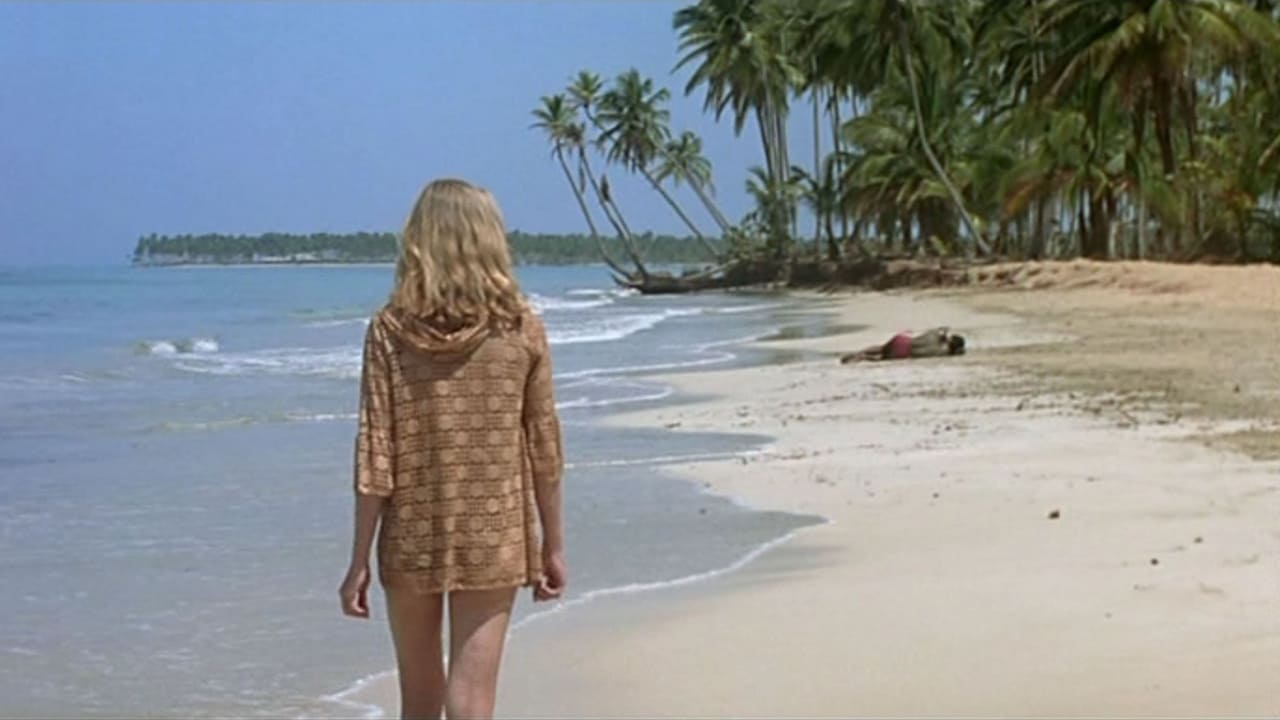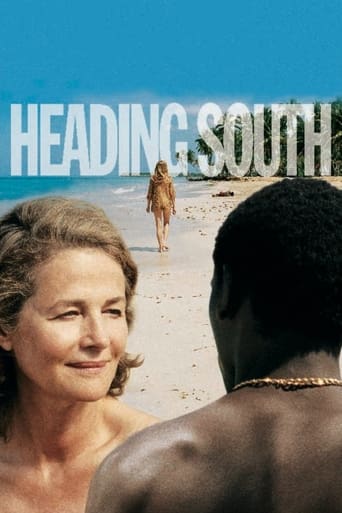



just watch it!
If you like to be scared, if you like to laugh, and if you like to learn a thing or two at the movies, this absolutely cannot be missed.
View MoreIt is neither dumb nor smart enough to be fun, and spends way too much time with its boring human characters.
View MoreThrough painfully honest and emotional moments, the movie becomes irresistibly relatable
View MoreLaurent Cantet's film "Vers le Sud" (Going South) is not so much about sex tourism as it is about tourism tout court. If the sexual element in this plot serves to highlight the sordid nature of unequal power relations (between wealthy or simply prosperous First World tourists and impoverished Third World natives), whether in the bedroom or out, the critique proposed here -with marvelous subtlety and a precision-honed camera-eye for the telling detail, for the revealing nuance- holds true for tourism in general. After the macabre events that strip away the facade of "tropical paradise" in which the lonely, sensitive women of the film have until then been living, the police official (it is not clear what is his precise capacity) utters the telling line: "Tourists never die." Alas, this is the tawdry reality of all tourism ultimately, as it implies service with an(unwilling) smile by those who have not towards those who have. In some Caribbean countries, this relation is rendered explicit -and sublimated- through the practice of "towel sculptures": leave a generous tip for your chambermaid and at your return from a day of sand and sunshine, a swan will be waiting on your bed; leave no tip at all, and a snake or a scorpion will. Cantet's film -whose photography is exquisite and perfectly adapted to not only the subject but also the mood of this work- shows the viewer its message, rather than tell it. Understated and subtle, the well-drawn out characters of the three women protagonists -Helene/Ellen, Brenda, and Sue- develop against the backdrop of Haiti's Tonton-Macoute/Duvalier regime, a backdrop implied more than actually shown. Ménothy Césaire's (and to a lesser extent Lys Ambroise's) acting, in my opinion, virtually steal(s) the show, a remarkable feat considering the powerful screen presence of Charlotte Rampling -who is here impeccably, elegantly, "classily" venomous- and Karen Young. Thoughtful and intense, well-worth viewing and worthy of this sophisticated director's other excellent work.
View MoreThe real problem with this movie is NOT that it depicts "women having fun", as another reviewer stated. It's that the women who were having the fun were disproportionately powerful in relation to the men with whom they were having the fun. The relationships were clearly exploitative, and the women were clearly lacking in awareness into their own motivations. So, for example, at least two of the three women (Ellen and Brenda) were in love, or at the very least emotionally dependent upon their relationship with the main male protagonist, Legba. Yet they seemed, for the most part, to be oblivious to their own inner workings and feelings.As such, it was impossible to feel any empathy for any of the women in this film. If that was the director's intent, then he succeeded. Furthermore, if it was the director's intent to show the power imbalance between the women and the men in this film, then I'd have to say he succeeded in that as well. But ironically, these apparent successes were achieved in spite of, rather than because of, the words the characters were saying. And that's usually a bad thing in a film. Unless, of course, that really was the director's intent from the start. In that case, he did an excellent job of portraying stupid, selfish, arrogant, Colonialist middle aged white women exploiting the poor residents of an oppressed country.
View MoreI saw this movie on August 19, 2006. It took me some time to catch on and find a meaning to it, but I did. The ladies in the movie were all obviously past age 40. It was clear that each one of them was tired of the bar scene and hadn't been in a relationship for a period of time. They felt that going to Haiti was an escape from the reality of where they were living, their jobs, and the fact that each of them wasn't in a relationship. The Hatian young men were used to provide them with a man to be with. Ellen admitted to the fact that life for a woman after 40 is different and the bars held nothing for her. Possibly the same can be said for the other women in the movie who were on Haiti for a vacation. What these women failed to realize and possibly didn't want to realize is the fact that there are other alternatives to finding men other than a bar, such as volunteering and hobby and special interest clubs. The same can be said for other women and I am sure for men. Ellen and Brenda had an interest in the same young Hatian man. When he was killed, they had no more purpose to being in Haiti. The movie does show the poverty in Haiti at the time, which still exists.
View MoreEveryone despises male sex tourism. But there also is a female counterpart. This movie tells about middle-aged women, going to Haiti in the 70s. They give the native boys presents and get sex instead.But that's not the whole truth. This is also about love tourism, because obviously these women have serious crushes on particularly one boy.Is it just another form of imperialism or is it more complex? Why do we somehow pity these women, while we're condemning men in the same situation? This movie puts questions you didn't want to hear and turns things around.
View More